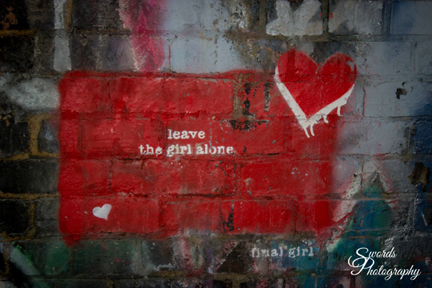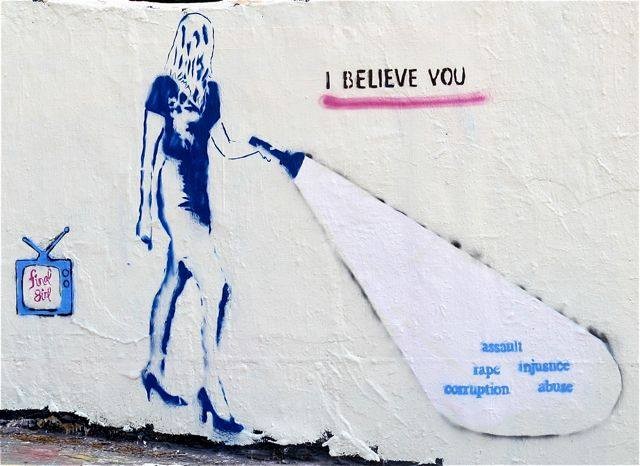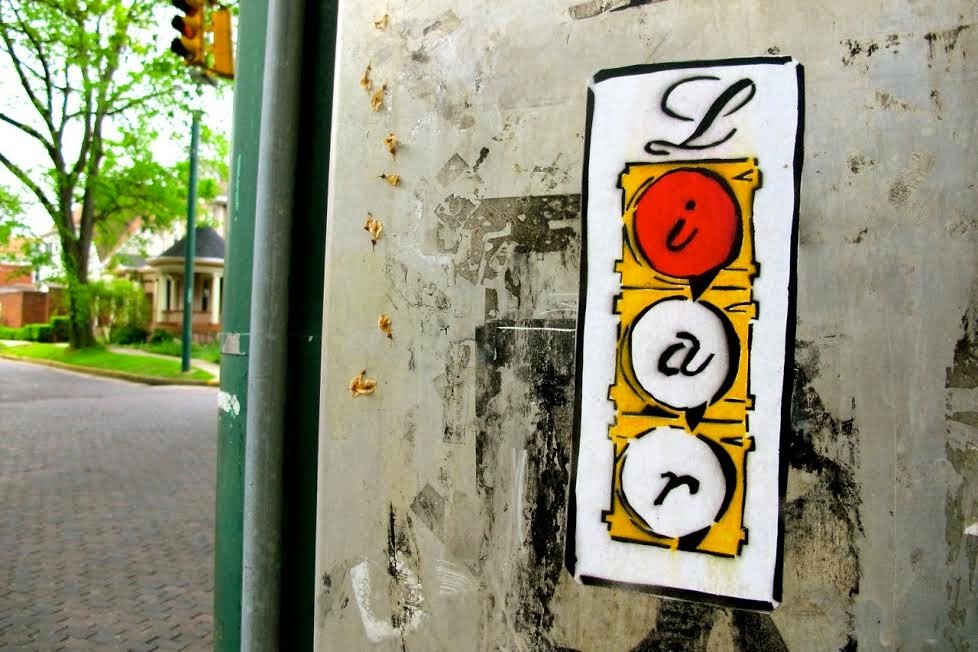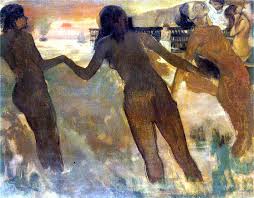At first we all mugged for the cameras, even the guys. We thought it was what they wanted, even though Jan Janis kept telling us to just be ourselves. We were being ourselves, we told her. Angel was worse than me, flirting with the camera guys and the PAs until I wanted to slap her. Nina, the ballerina, actually did it, a hot one across the face that left fingerprints. But after the camera guy drifted away, Nina went and got Angel an ice pack from the triage room. Then the choreography got fierce and we forgot about the cameras, at least for a while.
I auditioned for Dance Champ because it’s the quickest way from the flyspeck of a town I grew up in to a college dance scholarship or even an L.A. audition. Dancing is all I ever wanted to do. When I’m dancing I’m calm, focused. It’s the times I’m not dancing that I start to lose it. When I was about five or six, I started begging my mom for dance lessons. She never really asked why. Maybe she knew explaining it meant we’d have to talk about her break downs, which is something we never did. Not ever.
When I was really little, she used to bring me into her bedroom with her when it happened. The older I got, the harder it was to stay in the room with her when she shut down like that. I couldn’t breathe in there with the curtains closed and the lights off. I couldn’t be her little hibernating bear cub like she wanted. By the time I was in kindergarten I was pretty self-sufficient. I could fix bowls of cereal and make a peanut butter and jelly sandwich. I knew when to leave for the bus in the morning and on days when my mom wasn’t waiting at the bus stop in the afternoon, I knew I was supposed to come inside and lock the door behind me.
On one of those days a thunderstorm was just starting to grumble as I got off the bus. I ran inside and turned on the TV to drown it out. I was looking for cartoons but landed on a show where people were dancing. There was fast music and colored lights. Their costumes were shiny and they smiled the whole time they were dancing. The next morning when my mom came out of her room, I begged her to let me take dance lessons.
Me and Angel were strictly dance friends then. We didn’t hang out together at school. I don’t really know why, different classes, different friends. But we were in the same classes at the same dance studio, the only dance studio in town and we carpooled to competitions. Mostly I rode with Angel and her parents because my mom hated driving anywhere further than her job at the insurance office or the grocery store. Angel’s parents drove us to the Dance Champ auditions down in the city and after we both made the cut to the New York City round, they came to my house to pick me up for the drive back down to the airport. My mom followed me out to the car and when Angel’s mom asked if she wanted to ride along with us, she surprised everyone by climbing into the minivan.
While we waited in line to check our luggage she kept fixing my collar and asking me if I had my boarding pass. She watched me so hard I could feel her worry weighing me down. It was so heavy that when the plane started to taxi down the runway I thought it might keep the plane from taking off.
When we got to New York, they corralled us in the hotel ballroom and paired us up. They put me with Claudio. He was this cocky, Latin dancer who Angel fell in love with on the spot. You could see why they put me and Claudio together though; we were built the same, tall and lanky, long fingers and sharp elbows. Even our hair was the same, dark, smooth, straight; later we found out he used a flat iron to get rid of the natural curl. Angel got Robert for a partner — short, blond and muscular. They say people always want what they can’t have.
The producers had a month to cut twenty pairs of dancers down to just five couples who would perform in front of a live audience. And the whole time that we were rehearsing, eating, sleeping, dancing for the judges and sabotaging each other’s dance gear, the red lights on the cameras blinked like a warning. They would shove a camera in your face when you first woke up or after a shitty rehearsal, trying to get a funny sound bite or a humiliating shot of you brushing your teeth that they could edit into the live show once they started airing episodes from Radio City.
By the end of the second week, they’d weeded out the kids who couldn’t keep up with the choreography. Now they started zeroing in on the photogenic, the ones with star personalities, and the kids with a story. According to Claudio, if you were good looking and had a made for reality TV story you were guaranteed a spot in the top ten. He claimed he’d survived a hurricane that swept through San Juan and gave Jan Janis a photo of himself with his arm in a sling.
It was easy enough to let Claudio be the one with the personality in our couple, like Angel was the personality between her and Robert. Then Jan Janis took an interest in me. She sat down with me like she did all the other kids and flipped through screens on her tablet looking at shots of me in rehearsal, childhood pictures I had to beg my mom to send, and the questionnaire I’d filled out. It asked basic stuff about your family and school and relationships and stuff.
“Says here it’s just you and your mom?” Her eyes were dark and hard to see into.
“Yeah.”
“No siblings?”
I shook my head.
“It says your mom never married, what about boyfriends? Was there anybody special in her life?”
“Not really.”
“What about grandparents? Aunts? Uncles?”
I couldn’t figure out where she was going with this. I mean I knew me and Mom were different. Other kids had grandparents who showed up for performances and cousins who came to their birthday parties. But the way Jan Janis was looking at me made our life seem freakish.
“What about your father?”
“I don’t know.”
“Well, what did your mom tell you about him? Did he leave? Is he dead?”
I shrugged and Jan Janis gave me a lecture about how on-camera shrugs make you look arrogant or stupid or both. I tried to give her something. “She didn’t have a relationship with my father.”
That wasn’t enough for Jan Janis.
“So you’re telling me you were an immaculate conception?”
“Didn’t you ever hear of artificial insemination?” I wanted to cut my tongue out as soon as I said it.
“And what did she tell you about that process?”
“She said she picked him out of a book. She didn’t want to wait around for Mr. Right and she really wanted a baby so she went to one of those fertility clinics.”
I have this thing where I can’t look right at the person I’m talking to, so when I finished the story about my mom I looked over at Jan Janis. Her mouth had gone all tight and she was tapping her screen like mad.
“She never told you anything about him?”
I always thought my mom was embarrassed about the way she had me, so I never asked. But Jan Janis was looking for more and I didn’t want to be the reason me and Claudio ended up on the next plane home, so I lied. “Sometimes she’d say, ‘your donor had curly hair,’ or ‘your donor was left-handed.’ Stuff like that.” It was all bullshit. My mom never said a word about him. Ever.
But that’s when Jan Janis finally smiled.
Claudio said that every season Jan Janis picked a dancer to be her pet project and her pet always made it to the final show and sometimes they were even Dance Champ. Claudio ticked them off on his fingers – Carly from season two, Jefferson from season five, Ariel from season eight, and Trey from last season.
After that interview, it did seem like Jan Janis started taking more of an interest in me. She sent her staffers over to stock the mini fridge in our room with protein shakes and power bars. She made sure I got the practice studio at a decent time instead of six in the morning or ten at night like before. Angel was happy because whatever Jan Janis got for me I shared with her and Claudio and Robert. Then I started worrying that all the extra attention was just a trick to sabotage me somehow. And all the time she kept asking me stuff about my dad.
“Didn’t you ever want to find him?”
“My mom said the clinic was strict about keeping donors anonymous.”
“But you’re curious, right?”
“I guess.”
“What if you could meet him?”
I shrugged and Jan Janis frowned.
My mom had stuck so tight to her sperm in a cup story all these years, that’s all he was to me. It wasn’t like he’d rejected me. He didn’t even know I existed.
After a while it was pretty clear that Jan Janis thought she was going to do some big reveal. She’d find my dad and stick us in the green room together until one of us started crying. They did that to a dancer from season three whose mom walked out on her when she was little.
Just to be sure there was nothing for Jan Janis to find, I asked my mom about it during our Sunday video chat session.
“They can’t do this,” she said.
Nobody looks good on video chat but all of a sudden my mom looked paler than usual, like she does when she’s been shut up in her room for a while.
“Do what?”
“I’ll sue them.” She was shouting so loud the vibration blurred the video feed.
“Jesus, Mom. Calm down.”
“It’s invasion of privacy. It’s libel or slander.”
“You always said the contract you signed at the fertility clinic was totally confidential. There’s no way for me to find my father or my father to find me.” I was trying to be reassuring but it didn’t calm her down much.
My whole life my mom had never been on a plane, but she caught an early flight the next morning and burst into the studio where I was rehearsing. There were six of us left in the competition by then: me, Claudio, Angel, Robert, Nina the ballerina and Nina’s partner. It was our third week dancing in front of the live Radio City audience. Two couples had been eliminated by viewers – death by cell phone – and everyone was edgy and secretly nursing an injury of some kind.
“Let’s go.” My mother grabbed my arm. “You’re coming home.”
Jan Janis was right there behind her. “You signed a contract with us, Mrs. Sanders.” Jan Janis whipped out her tablet and started poking at it with one finger.
“You’ve no business prying into our personal life.” My mother seemed different, armored.
“If you look at page eight of your contract.” Jan Janis started flipping pages and for the first time I noticed how bitten down her fingernails looked, the skin at the edges pink and angry looking.
Mom pulled me toward the door. “We’re going.”
Jan Janis blocked the way, shoving the tablet in my mom’s face. I ducked out from between them and turned off my music.
Then Jan Janis tried to buddy up to her.
“I respect the choices you made, Mrs. Sanders,” she said. “I’ve been thinking about the fertility clinic option myself. I mean, I’m not getting any younger and I don’t need some man to give me permission, right?”
That flipped a switch in my mom but not in the way I expected.
“It’s not for everyone,” she said. Then she dragged me away to my room where she started stuffing clothes into a duffle bag. Whatever she put in, I took out again.
“I should have said no right at the beginning,” she said. “But to be honest, I didn’t think you’d get this far.”
“Gee, thanks for believing in me.” There was no way in hell I was leaving.
“Honey, I’m sorry. I blame myself for this, not Jan Janis. She’s only doing her job. But I won’t let her violate us this way. Violate you this way.”
“It’s reality television. It’s what I signed up for. If it gets me a dance scholarship or a second look for a major audition it’s worth it.”
“Not like this, you have to trust me. You don’t want them to put our story out there.”
“Yes, I do.” My voice cracked. “If it means winning a Dance Champ scholarship, they can say whatever they want.”
“You have no idea what you’re opening us up for. I can’t allow it.”
Twelve seasons, one hundred and twenty episodes and in all those shows there was only one girl who vanished mid-season. Joelle. One episode she was there. The next she was gone. They said she ruptured her Achilles. But there had been other contestants with injuries, most caught on film and edited for maximum effect. And in those cases the dancer left smiling, waving a cast in a sling or hobbling gamely around on crutches, putting a good face on it. Usually the show promised to bring them back the next season. But not Joelle. Joelle just blinked out.
Jan Janis caught up with us then and she had security with her. I felt bad watching Mom walk away between those two lunks but I had a lot riding on this. She looked back at me from the doorway but I pretended not to see. Later, she told me that she took a room at the hotel, on a different floor, just to be near me. She wandered around the city during the day and ordered room service at night. I wish I’d known she was there.
I don’t think Jan Janis had my story figured out before my mom showed up, but something definitely clicked when she saw my mom in person. After that her attitude toward me shifted from pet project to something else, a product or a specimen or a walk up to the next level.
That week Nina and her partner were eliminated.
The finale was two shows back to back. The first night we would dance for votes and the next night we would find out the results. Up to now we’d danced with the same partner but now we would be dancing solo. On the night we danced for votes, they would flesh out the two-hour long episode with snippets from our Dance Champ “journey” and live interviews of each of us in the green room. A good interview could boost a dancer’s votes and a bad one could send you home. You just had to sit there and smile while Jan Janis dragged out every sad or embarrassing moment from your past to broadcast nationwide.
I was the last in the first rotation of dancers to perform. As soon as the lights went black the assistant stage manager walked me to the green room. I was still a little high from the performance so it was hard to focus on what Jan Janis was saying at first.
Then she flashed a photo on the giant flat screen monitor in the green room. It was of a man, tall and lanky, dark haired, holding a rifle like he was comfortable with it, like he was about to hoist it to his shoulder and take out a bad guy. Except that he was the bad guy. The photo was scanned from a newspaper so everything looked grey and parched, the color leeched out.
Jan Janis tapped her tablet and the photo disappeared, replaced by soundless video footage. A female TV reporter dressed in suit, heels and pearls stood in front of a brick ranch. The land around it looked withered and dry. There were no other houses, just a few out buildings – a cinderblock bunker with no windows and a metal shed with a beat up van parked next to it. Beyond the yellow crime scene tape, police and F.B.I. agents milled around, measuring, documenting. The reporter spoke urgently, quietly into the camera. She kept looking over her shoulder at the house as if the evil inside was oozing toward her like hot lava.
I was beginning to feel that way, too.
“The story was all over the papers back in ninety-four,” Jan Janis said. “That pervert picked her up when she was fourteen, grabbed her from a shopping mall and kept her hostage in that cinderblock bunker.”
As the video ran, an F.B.I. agent escorted a man from the house to an unmarked car. His hands were cuffed and his face hidden by a baseball cap but his shape was the same as the man with the gun she’d first showed me.
“Convicted on kidnapping, rape and a bunch of other things,” she said. “He’s doing a double life sentence in some prison in Oregon.”
“Am I supposed to know him? ‘Cause I don’t.”
That’s when she showed us the school picture of my mother. It wasn’t one I’d seen before; we only had a few from when she was a little kid. She was young, maybe a couple years younger than me now. Her hair was blond, her face was baby-fat round, and she looked lighter some how, golden instead of grey.
“It was her? He kidnapped her?” I wanted to curl into a ball and run all at the same time, so I didn’t do anything. I just sat there.
“It was a huge media orgy when she first disappeared. Her parents were suspects for a while and then they investigated an older neighbor. It took them eighteen months to find this guy.”
Jan Janis swiped again and there was a picture of my mother with an older couple and a younger boy and girl with their arms around each other. It must have been taken afterward because the grey was there, hovering around her like an aura. She wore a UCLA sweatshirt that was too big except for where her pregnant belly bulged against it. Though it was meant to be a family picture, she seemed to be holding herself apart, a thin sliver of air separating her from the others.
“You must recognize your grandparents, your aunt and uncle?”
I shook my head. There was no way I could open my mouth. All the words I knew dammed up at the back of my throat. I looked at the camera, recognized that the whole world was watching – my mother, this family I’d never met before, maybe even the man with the gun. I wanted my mother’s dark bedroom, I wanted to go in and lock the door and close the curtains.
The dominoes began tipping over in my head. That I had a father. That he was a sick pervert. That he turned my mother into a woman who ran away from her family and spent half her life in a dark bedroom.
It made sense now. Why my mother never went on dates and hated crowds. Why she always looked out the peephole before she opened the front door. Why she told me I was a test-tube baby. That creep, my father, was still out there. Locked up maybe, but alive.
“Your mother is a remarkable woman,” Jan Janis said.
“Stop.” I reached for the camera. There had to be a way to stop that blinking red light. I stood up but my legs shook so hard I had to sit down again. “Turn it off. Make it stop.” I was whispering now.
She shook her head, disappointed.
“He’s kept your mother in a prison of her own making all these years. Maybe it’s not a cinderblock bunker but it’s not a real life she’s been living. And you. You worked your ass off to get here. You’re good. You could actually win this if you want it bad enough. Are you gonna let him steal that from you?”
“I can’t.” The fist in my gut expanded, filling my lungs, suffocating me like the heavy darkness in my mother’s room.
“You can. You will. You have the power to set your mother free, to reunite her with her family. And all you have to do is go out there and dance.”
The producers cut to the stage. Robert began his final routine.
Somehow Jan Janis hustled me out of the green room and into the warm-up studio. On the monitor in the corner, Robert flew across the stage, legs thrusting, arms flung wide. I wanted to be him. Claudio rocked me in his arms until the PA came for him then left to take his mark on stage. Angel dragged me to a corner of the room out of camera shot.
“I can’t believe you never told me,” she hissed.
“I didn’t know.” I could barely unclench my jaw enough to get the words out.
“You can’t let him get you, too. You have to dance one more time. Get your shit together.”
“I can’t.”
“You have to. Your mom’s out there in the audience.”
That’s when I knew she stayed. That she’d seen where all this was headed, where Jan Janis would take it. She wasn’t in her bedroom with the curtains drawn and the lights off. She was out there, ready to catch me or watch me, whichever way this turned out.
And then the PA came for me.
If you watch the show you know how it ends. Angel won – she really was that good – and Claudio was runner up. But I did dance. I shut down the fear, blocked the evil and disappeared for a while. It wasn’t dancing that saved me, like I always thought it would, it was knowing my mom was out there, probably more scared than I’ll ever be. She saved me. She saved us both.
Lori Eaton lives, works and writes in Metro Detroit. Her first short story appeared in Sassy Magazine more than twenty years ago. More recently, her short fiction was published in the spring/summer 2014 edition of The MacGuffin. Several of her 10-minute plays have been produced in theatre festivals in Michigan and California. Her first one-act play will receive a staged reading this spring. When she isn’t crafting stories or plays, Lori writes grants and other content for local nonprofits.





